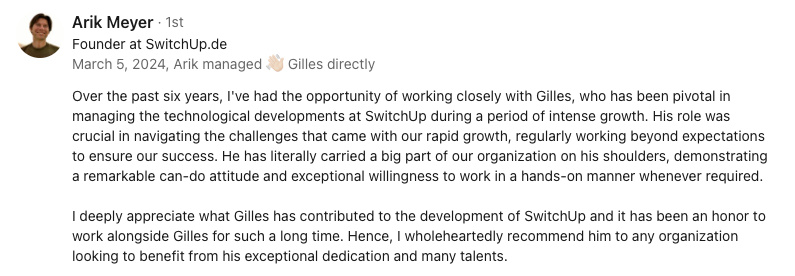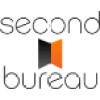Abstract:
The article discusses the complex landscape faced by tech executives in Europe as they navigate stringent EU regulations like the General Data Protection Regulation (GDPR) and the Right to Disconnect, which significantly influence business operations and employee well-being. These regulations demand not only compliance but also a shift in corporate culture towards valuing privacy and work-life balance. GDPR emphasizes data protection and transparency, which, while challenging, can enhance trust and operational efficiency. The Right to Disconnect aims to protect personal time, promoting employee satisfaction and reducing burnout. This is particularly difficult for startups, which often struggle with the financial and cultural adjustments required for compliance. The article highlights how successful companies, like Sweden's Klarna, incorporate these regulations to foster a supportive work environment, thereby enhancing employee retention and productivity. It suggests strategies for balancing regulatory compliance with flexibility, such as investing in secure technologies, regular training, and fostering open communication within teams. Looking ahead, the article stresses the importance of staying informed about upcoming EU policies to maintain a dynamic and compliant work environment that prioritizes well-being and efficiency.
You're a tech executive in Europe, balancing innovation with the complexities of regulations like data privacy and work hours. It's like trying to solve a Rubik's Cube on a rollercoaster. If you're feeling overwhelmed by the EU's regulatory maze, you're not alone. Many are striving to balance compliance with a good work-life balance, a challenge akin to finding that last matching sock in the laundry.
Two regulations stand out: the General Data Protection Regulation (GDPR) and the Right to Disconnect. These aren't just about ticking boxes; they fundamentally change how businesses operate and affect everyday life. From handling data with care to protecting personal time from work intrusions, these rules demand attention. Tech leaders must understand them not only for compliance but also to foster a work culture that values privacy and well-being.
This article delves into how these regulations influence everything from resource allocation to employee satisfaction. Whether you're an experienced executive or new to the startup world, you'll gain insights into how EU policies are shaping the future of work and life.
Understanding EU-Specific Policies
Navigating EU regulations can be challenging for tech executives, especially when striving for balanced work-life integration. The GDPR and the Right to Disconnect are key regulations that influence data handling and work hours, impacting both operations and employee well-being.
General Data Protection Regulation (GDPR)
The GDPR is essential for data protection and privacy in the EU, making organizations more transparent and accountable in handling personal data. It protects EU citizens by requiring companies to clearly communicate how they collect, store, and use data. For tech leaders, understanding GDPR isn't just about compliance; it's about building trust with stakeholders.
Reflecting on personal experiences, understanding GDPR is vital. It's not just about avoiding fines—it's about demonstrating a commitment to data privacy. This often means adjusting data handling practices. Many tech leaders can relate to the challenges of navigating these regulations.
GDPR requires strong security measures and imposes significant penalties for non-compliance, which can be financially challenging for startups. These requirements push organizations to prioritize data protection, often reallocating resources from other areas. However, GDPR also empowers individuals by giving them more control over their data, leading to better data management practices. Companies that streamline their data processes often see improved efficiency as a side benefit.
The Right to Disconnect
The Right to Disconnect is crucial in maintaining work-life balance, especially for tech executives who find it hard to unplug. This policy limits work communication outside regular hours, boosting employee well-being. By ensuring work doesn't intrude on personal time, companies can enhance satisfaction and create a healthier work environment.
Implementing this isn't easy. Companies need clear policies and technology to enforce disconnection, leading to cultural shifts. Tailoring these policies requires careful planning. Yet, when done right, it can shift company culture to respect personal time.
This right isn't consistent across the EU. Countries have different regulations, like France's comprehensive approach, while others vary. This diversity reflects cultural and legal differences, presenting challenges and opportunities for organizations trying to comply while fostering a supportive work culture.
Navigating Compliance and Work-Life Balance Challenges
Balancing EU compliance and a healthy work-life balance is tough for tech startups, especially smaller ones.
Challenges in Compliance
For many startups, GDPR compliance is financially straining. Initial costs are high, needing investments in technology and staff. Startups with tight budgets stretch resources thin. Hiring roles like Data Protection Officers can be difficult for smaller companies.
But cost is just one challenge. GDPR's complex rules require a deep understanding and dedicated teams. Many startups, without full compliance teams, feel overwhelmed. Even small mistakes can lead to significant penalties, making it a constant juggling act.
The Right to Disconnect adds complexity. Startups, known for flexible work cultures, find it hard to set boundaries. Balancing innovation and productivity with respecting personal time requires cultural shifts, time, and effort.
Opportunities for Enhanced Work-Life Balance
Despite challenges, EU regulations can improve work-life integration. GDPR fosters a culture of trust and transparency. When employees see their data treated responsibly, it builds trust and boosts morale, leading to cohesive teams and better performance.
Similarly, the Right to Disconnect reduces after-hours communication, creating a healthier work environment. Employees recharge, increasing job satisfaction and reducing burnout. This cycle of well-rested employees boosts creativity and energy.
Adapting to these regulations isn't just about avoiding penalties; it's a chance to improve organizational processes. Structured compliance approaches lead to efficient work practices, benefiting both well-being and operational effectiveness. Startups that integrate these changes often attract and retain top talent, driving success.
Case Studies: Successful Adaptation
Examining Europe's innovative startups shows how EU policies can be woven into company culture, fostering work-life balance and boosting satisfaction and retention.
Klarna: Embracing Work-Life Balance
Klarna, based in Sweden, is a great example of integrating work-life balance directives to enhance employee well-being and performance. Klarna aligns with Sweden's flexible hours and generous parental leave policies, key parts of EU's work-life balance initiatives. This focus on employee time and family commitments is deeply ingrained in their culture.
Klarna's policies have a significant impact. Employees are highly satisfied, promoting retention. This cycle of satisfaction leads to higher productivity and innovation, driving Klarna's growth in Sweden and across Europe. By prioritizing well-being, Klarna shows that work-life balance is a strategic choice fueling business success.
Strategies for Implementing EU Policies
Balancing regulatory compliance with a dynamic work environment might feel like juggling, but the right strategies can make it possible.
Balancing Compliance and Flexibility
Investing in secure technologies is crucial. Tools like secure cloud services and encryption protect sensitive data wherever work happens, ensuring compliance across settings. This technology supports remote work, providing flexibility employees appreciate.
Regular compliance training and audits are also key. Workshops keep everyone updated on legal changes, cultivating a culture of compliance. These aren't just checkboxes—they integrate standards into daily work. Regular audits catch issues before they become costly penalties.
Fostering a Supportive Work Environment
Creating a thriving work environment starts with open dialogue. Encouraging team members to share thoughts aligns company practices with employee needs and regulations. This feedback ensures policies feel like helpful adjustments, not arbitrary commands.
Using technology can further support work-life balance. Tools like Slack or Microsoft Teams manage tasks efficiently without constant presence. They streamline communication and allow flexible workload management, respecting personal time while promoting efficiency.
Tech executives must adapt to potential policy changes to maintain flexibility and compliance.
Future Outlook
Exploring upcoming EU policies offers insights into their impact on work-life integration. Understanding these changes and adapting becomes important.
Upcoming Policy Changes
The Work-Life Balance Directive could enhance balance through policies like parental leave and flexible work arrangements. Promoting flexible policies, it aims to improve life for working parents and carers. These policies might require startups to change leave policies and increase costs but also attract diverse talent.
Remote work legislation and the Right to Disconnect are gaining attention. Encouraging a boundary-respecting culture, these measures could reshape how startups manage teams, especially those with flexible hours. Adapting to these changes can enhance satisfaction and retention.
Staying Ahead of Trends
To handle changes, tech executives need proactive strategies. Monitoring EU Commission publications and joining industry groups helps stay informed about regulatory trends. Engaging with these resources helps adapt strategies, staying ahead of compliance and industry developments.
Scenario planning is also useful, exploring various regulatory impacts. This aligns compliance with business goals while meeting employee needs. It ensures resilience and fosters a culture prioritizing well-being. Successfully navigating compliance allows tech leaders to create a dynamic environment where regulations and efficiency coexist.














